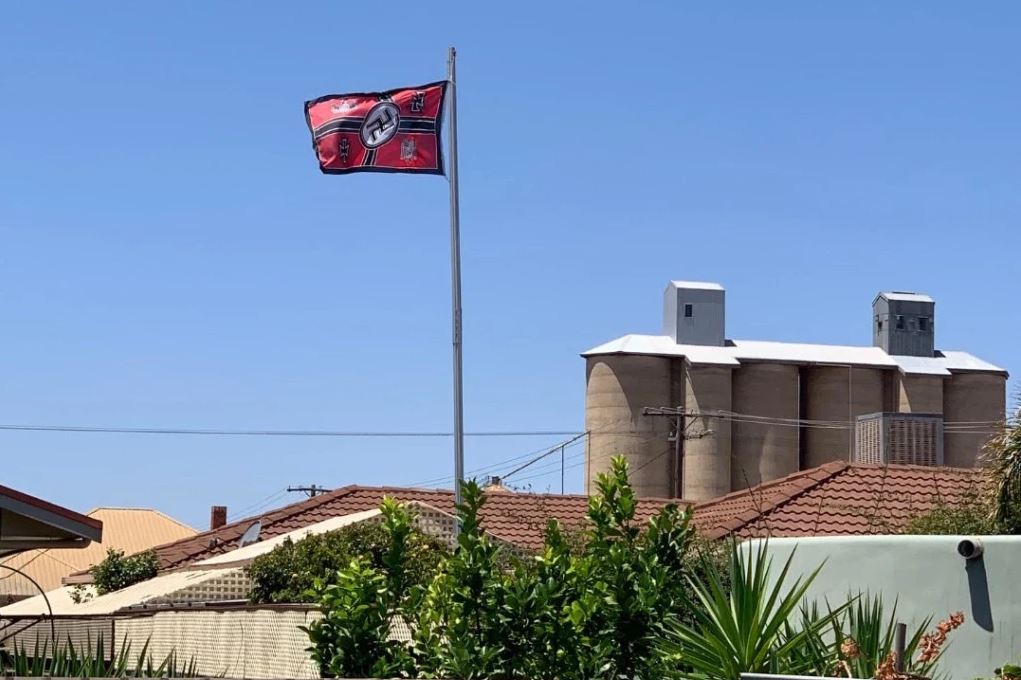Imagine what would happen if you were to raise the black flag of ISIS high over your house. Chances are you’d be arrested and charged for a terrorism-related offence.
Imagine, then, if you were to display Nazi symbols. Say, you were to raise a swastika-emblazoned flag. Would you be arrested and charged for an offence?
This isn’t a hypothetical question for the town of Beulah in north-west Victoria. And the answer, it seems, is no. There, Cheryl Lawdorn and her partner flew a Nazi flag in their backyard for several weeks. According to media reports, Lawdorn defended the flag by saying she had German ancestry.
Despite widespread public condemnation, the couple has so far escaped any formal sanction (though they have now taken the flag down). Victorian authorities find themselves in a bind. The abhorrence of Nazi symbols aside, there seem to be few legal grounds for authorities to take any action.
That’s because the Victorian criminal law only extends to offences aimed directly at the person or at property. It doesn’t cover the advocacy of racial supremacy.
And while the Racial and Religious Tolerance Act makes it unlawful to incite hatred, serious contempt or severe ridicule of others based on race and religion, it has only been used infrequently with success. Courts have imposed a high threshold on what constitutes unlawful hatred, contempt or ridicule.
Given the marked rise in anti-Semitism and white supremacy, there is understandable community concern in Victoria. What good is a law against racial hatred if it can’t be used in response to the advocacy of Nazism? How else would you describe the public flying of a Nazi flag?
Read the article by Tim Soutphommasane in the Brisbane Times.

